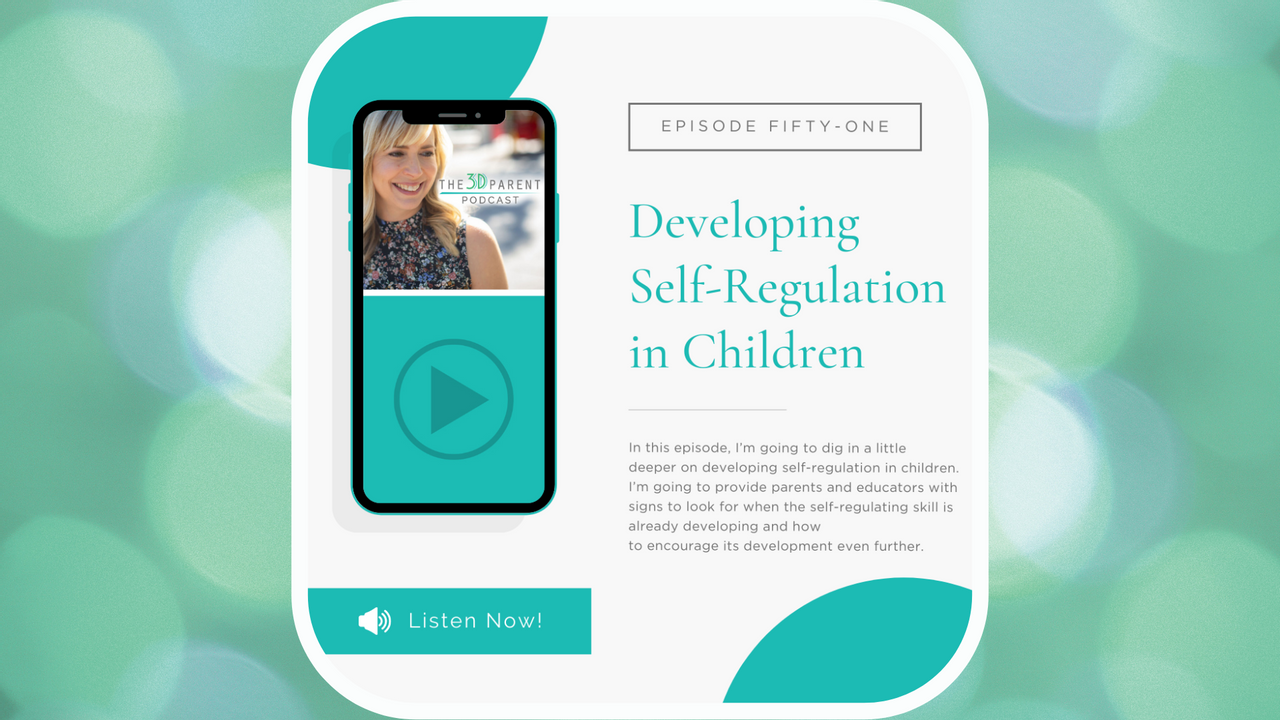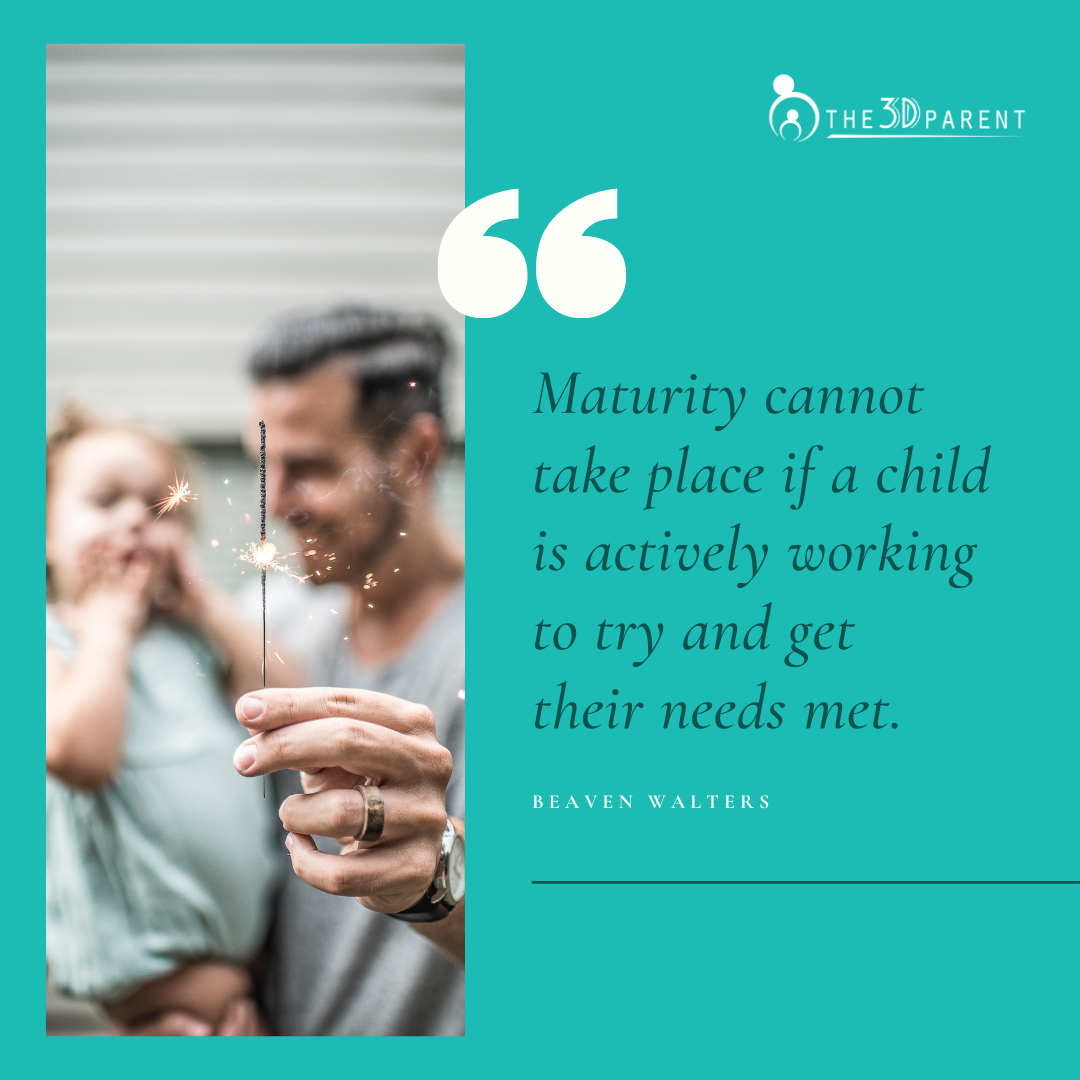Developing Self-Regulation In Children
May 18, 2021
“Maturity also can't be hurried up nor is it guaranteed. Only growing older is guaranteed. And I think many of us could think about adults in our lives who are incredibly immature, who maybe are on a maturity level, not much beyond a five or six or seven years old. And it may be that they are not very developed when it comes to their integrative functioning, their mixing of conflicting feelings.”
This week on the 3D Parent Podcast, I’m going to dig in a little deeper on developing self-regulation in children. I’m going to provide parents and educators with signs to look for when the self-regulating skill is already developing and how to encourage its development even further.
Some of the topics covered in this episode include:
- Exposing facts and fiction when it comes to self-regulation and its development in children.
- The role of integrative functioning in children’s self-regulation skills; when this usually develops and why sometimes it doesn’t develop on schedule.
- Unpacking the five steps of emotional maturity by Dr. Gordon Neufeld and its role in self-regulation in children.
- What to do when your child loses their ability to self-regulate.
Understanding how self-regulation develops in children is an integral concept in parenting. Knowing the facts behind self-regulation helps ease anxiety for a lot of parents out there. In this episode, I hope that I can help parents nurture an environment that is needed so that self-regulation can develop in your child.
Things You Will Learn

Episode Resources
Neufeld Course on the Science of Emotion
Article on Emotional Maturity in Children
Quotes From Episode 51
“Maturity cannot take place if a child is actively working to try and get their needs met.”
“It's essential that parents make it safe for children to feel all their emotions, especially those that are most vulnerable.”
“Some feelings may not be pleasant, but they’re essential. And children have to be able to feel those unpleasant feelings and not avoid them to be able to reach emotional maturity.”
“Celebrate the moment when your child can mix their feelings, it is evidence that your child is maturing.”
“Understanding the reason why children lose their ability to self-regulate helps parents to recognize that this is not necessarily intentional. And it helps parents to have more empathy for what’s going on with their child.”
“As a parent and caregiver, it is our role to help our child walk through the five steps of emotional maturity before they can do it for themselves.”
Let's work together! I provide 1:1 support for parents motivated to make positive changing in their parenting and gain confidence and increase fulfillment in their role as parents. If this sounds like it might be what you've been looking for, book a free consultation today.
Stay connected with news and updates!
Join our mailing list to receive the latest news and updates from The 3D Parent.









